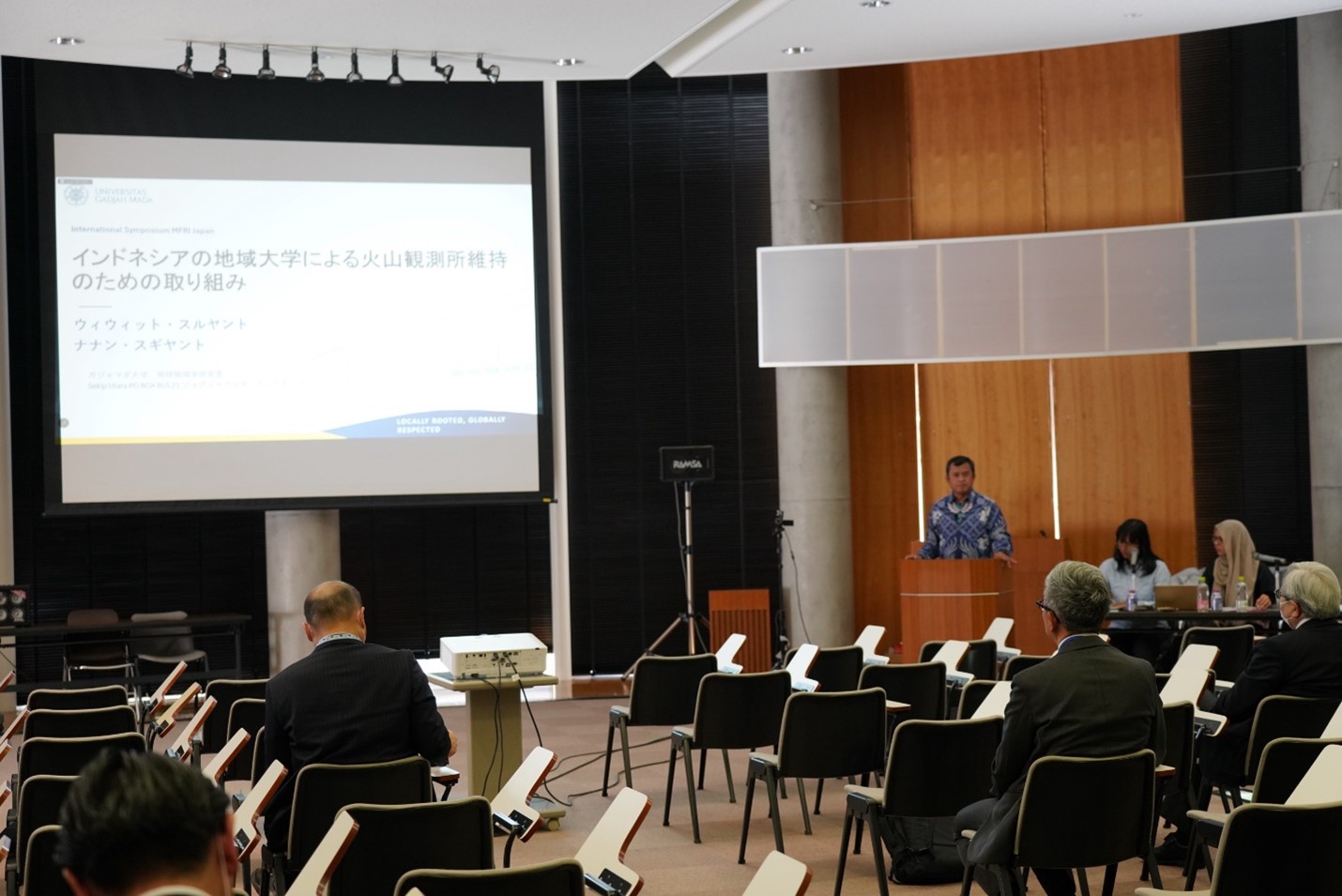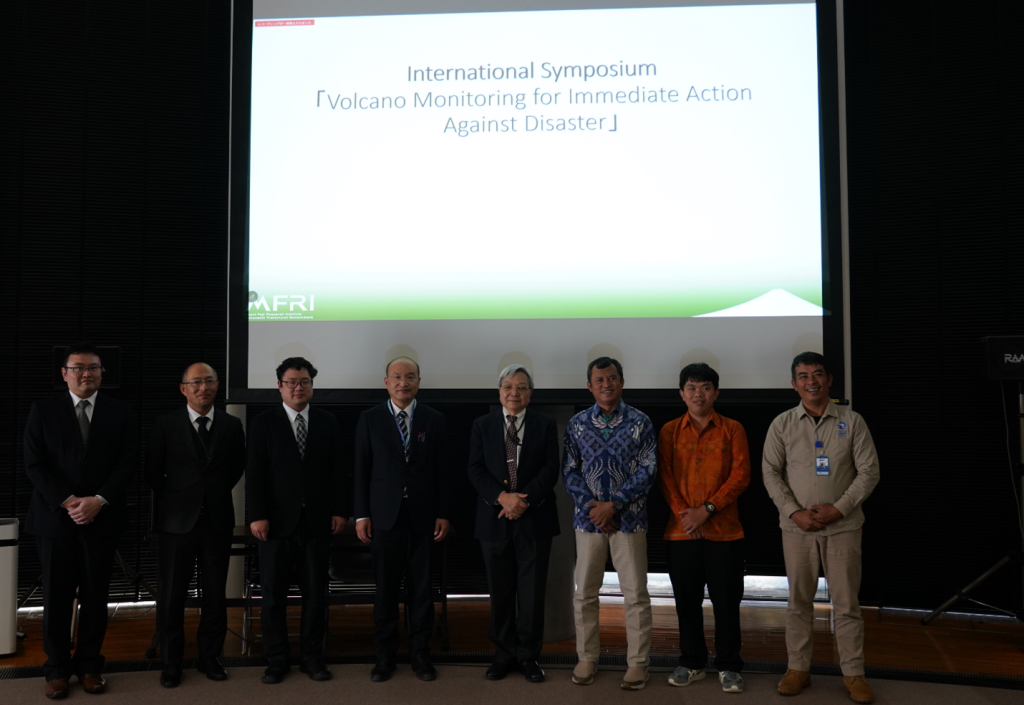Dr. Wiwit delivered a presentation
A delegation from Universitas Gadjah Mada (UGM) attended an International Symposium on Volcano Monitoring for Immediate Disaster Response at the Mount Fuji Research Institute in Yamanashi Prefecture, Japan on March, 4th 2024. This event is an important milestone in the Grassroots Japan International Cooperation Agency (JICA) Project, titled “Building a Disaster-Resistant Community through the Utilisation of Local Universities as a Base for Responding to Low Frequency, Large-Scale Disasters.” This collaborative initiation, launched in 2022 and set to last until 2025, represents a strong relationship between Universitas Gadjah Mada, Universitas Udayana, and Bali’s disaster volunteer network. Dr. Ade Anggraini, a seismologist from UGM, wholeheartedly supports this project.
Pioneering research and collaborative efforts.
Dr. Wiwit Suryanto from UGM attracted delegates at the conference with his presentation on “Efforts towards Maintaining Volcano Monitoring Stations through Local Universities in Indonesia.” Dr. Suryanto’s ideas shed light on the vital link between universities, research agencies and the community, emphasizing creative techniques and the crucial role of academic institutions in disaster preparedness to develop state-of-the-art technology for monitoring, detecting and understanding the structure of a volcano.
Dr. Kazuya Yamakawa of the Mount Fuji Research Institute (MFRI) spoke “Volcanic Infrasound Observation for Quick Detection of Eruption Vents,” providing ground-breaking perspectives on the early detection of volcanic activity. This research is critical for communities living near active volcanoes to mitigate the impact of possible disasters.
Mr. Alvin Yesaya from Universitas Udayana and Mr. Suta Wijaya, Chair of the Bali Province Disaster Risk Reduction Forum, represented the project’s collaborative spirit by sharing their experiences and collective efforts in Bali. Their comments highlight the value of local participation and volunteers in disaster resilience.
Aligning with Sustainable Development Goals.
This symposium and the broader project strongly align with the United Nations Sustainable Development Goals (SDGs), particularly SDG 11 (Sustainable Cities and Communities) and SDG 13. This effort, which focuses on disaster risk reduction and the use of scientific research for community safety, illustrates a proactive approach to protecting vulnerable people from natural catastrophes.
A beacon of hope for future generations.
The UGM delegation’s participation at the International Symposium on Volcano Monitoring demonstrates not only their dedication to academic success and community engagement but also serves as a light of hope for future generations. It emphasizes the significance of international collaboration, local engagement, and the critical role of education in disaster-resistant societies.
This project and similar initiatives remind us of the power of collective action and the crucial need to be prepared for natural disasters. The quest for a safer, more resilient world continues, with academia and community collaborations at the forefront.
A group photo of the International Symposium (Photos: Wiwit)
Keywords: disaster, volcano, symposium
Author: Dr. rer. nat. Wiwit Suryanto, S.Si., M.Si.
Photos: Dr. rer. nat. Wiwit Suryanto, S.Si., M.Si.
Editor: Febriska Noor Fitriana




